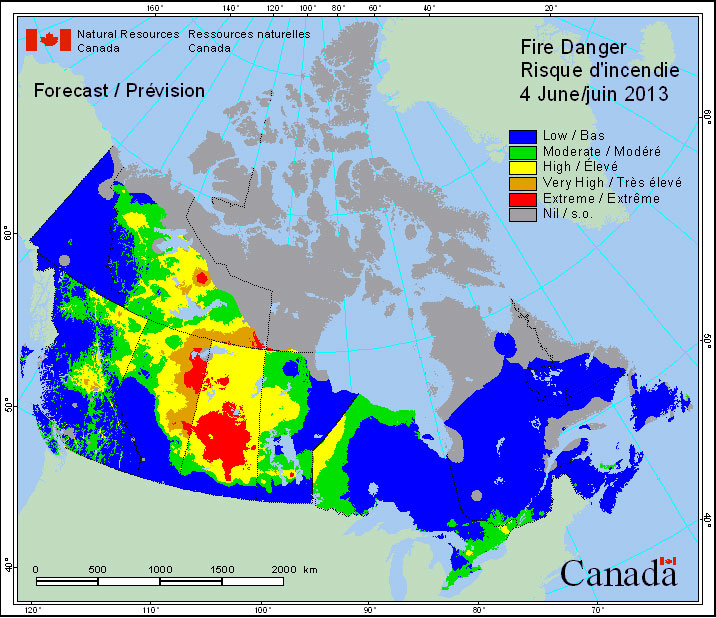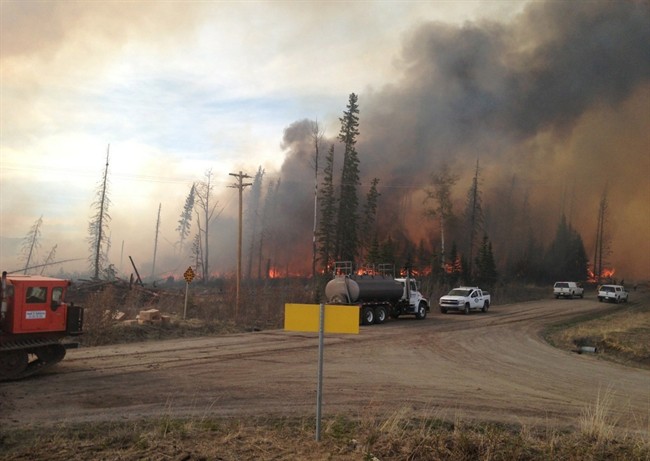Across Canada, snowfall warnings have been replaced by fire warnings.

Though the country has experienced a slow start to the spring, almost every province has had a major fire. As of June 4, there are 59 fires burning across the country, only 7 are out of control.
There may be one good thing to come of the long winter and wet spring the country has experienced: it means a later start to the fire season, one that Natural Resources Canada doesn’t anticipate to be extremely active.

“In fall 2012 the Drought Code (DC) values – an indicator of seasonal drought effects on forests – across much of Canada were showing extremely dry conditions across much of Western Canada and the territories,” said Bruce Macnab, Head, Wildland Fire Information Systems for Natural Resources Canada. “However, in general this winter brought relatively high levels of snowfall (which could be expected to lessen the DC values).
“Another important factor has been the relatively slow onset of spring. As many Canadians would attest, there was snow on the ground into May in many parts of the country. The biggest impact of this is a relatively late start to fire season. So far both the number of fires is about average but the area burned is well below average for this date (on a national basis).”
The biggest extreme fire danger, Macnab said, is from south central Northwest Territories through to the northern half of Alberta, central and southeastern Saskatchewan and Manitoba.
Though wildland fires across Canada have consumed an average of 2.3 million hectares a year– roughly three-and-a-half times the size of Prince Edward Island — over the last 25 years and the average number of fires is 8300, Macnab said that it’s difficult to determine what is a seasonal average of forest fires for Canada.

Typically, half of all fires are caused by humans and the other half by lightning.


Comments